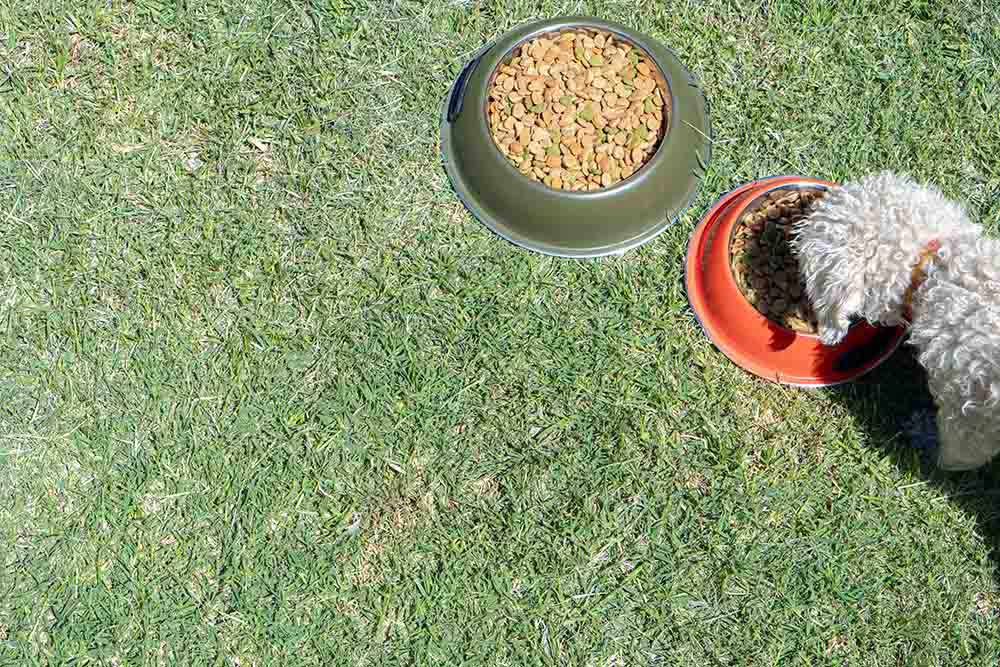How To Train A Miniature Schnauzer: 9 Helpful Tips
By Lorre Luther
Updated on
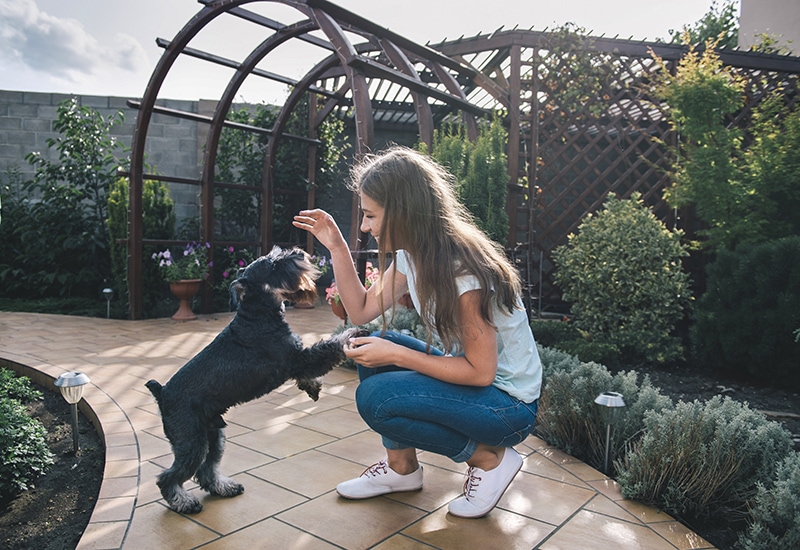
Miniature Schnauzers are loveable small dogs that are smart and full of energy. They’re classified by the American Kennel Club (AKC) as Terriers, although they tend to be mellower than their group mates. Miniature Schnauzers don’t grow to be much higher than 14 inches at the shoulders, and most weigh 11 to 20 pounds. They usually live for 12–15 years. Because they’re so loyal and smart, Miniature Schnauzers are usually relatively easy to train, although they can sometimes be a bit stubborn. Reward-based techniques win the day with these sensitive dogs. Read on for nine Miniature Schnauzer training tips.
The 9 Tips on How To Train A Miniature Schnauzer
1. Keep It Positive
Ignoring unwanted activities and rewarding behavior you want to encourage works incredibly well when promoting good behavior in Miniature Schnauzers. Giving your pet the things they love (like attention and cuddles) is essential for forming a solid bond with your dog. Because Miniature Schnauzers bond deeply with their humans, they’re often motivated to please and usually respond incredibly well to praise and treat-based training techniques.
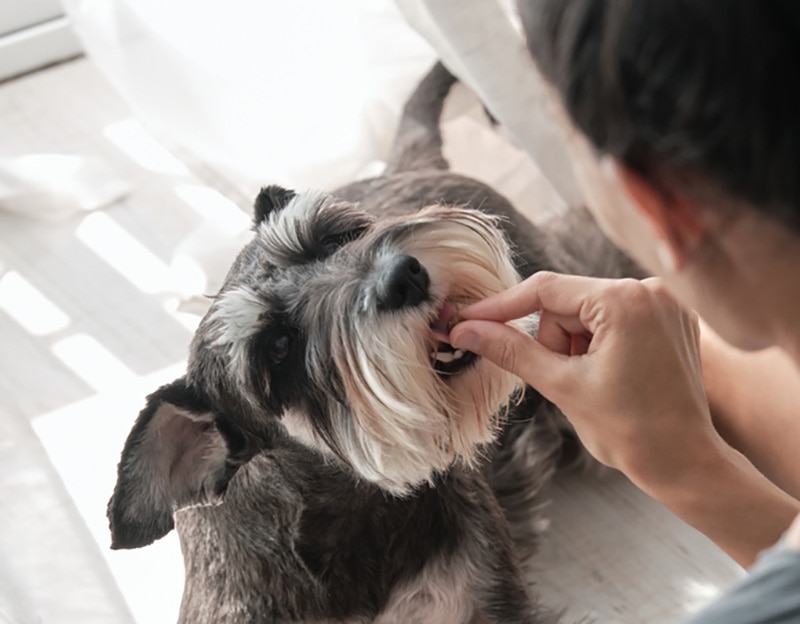
2. Start Young
Miniature Schnauzers can sometimes be stubborn, particularly if they grow up without sufficient socialization or training. Getting started with training as early as possible often makes the process easier, as puppies are still in super-learning mode. Puppies can generally start working on basic commands when they’re 8 weeks old or so.1 Make sure to keep things short, 5 to 10 minutes per session is plenty. Always keep things moving in a positive direction, even if your dog is struggling to learn a new command.
End on a positive note by revisiting a trick or command your pet has already mastered and giving them lots of praise for their accomplishment. High-note endings encourage your dog to look forward to the next training session, which may accelerate the learning process.
3. Use Happy Tones
Miniature Schnauzers can be pretty sensitive, making it essential to avoid speaking to them in harsh tones or with a raised voice. Because Miniature Schnauzers become so attached to their humans, harsh treatment can be counterproductive when getting these sweet dogs to learn something new or change their ways. Yelling at the dog can be perceived as punishment, making it less likely to understand what you’re trying to communicate. It also adds a layer of unpleasantness to the entire outing, which may lead some dogs to develop negative associations with training.
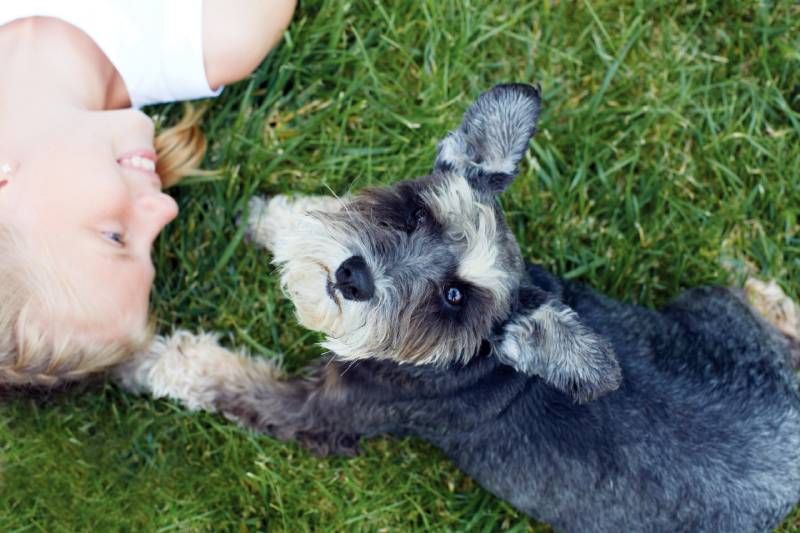
4. Give It Time
While some dogs learn incredibly quickly, others take a bit more time. And if training is fun and gives you and your pet something to do together, ultimately, every second will have been well spent. Try to avoid becoming frustrated with your Miniature Schnauzer if they’re struggling to learn a new skill. Stay positive and give your pet time to develop confidence in their ability to learn; as they begin enjoying the process, things will likely speed up a bit.
5. Provide a Challenge
Sometimes dogs become less cooperative because they’re not getting sufficient mental stimulation. If your dog did incredibly well with training at first and suddenly appeared to backslide, they may need more of a challenge to keep them interested and engaged. Consider periodically upping your training game to keep things fun for your pet. Learning new tricks and working on agility skills are two ways to give your dog new forms of mental stimulation.
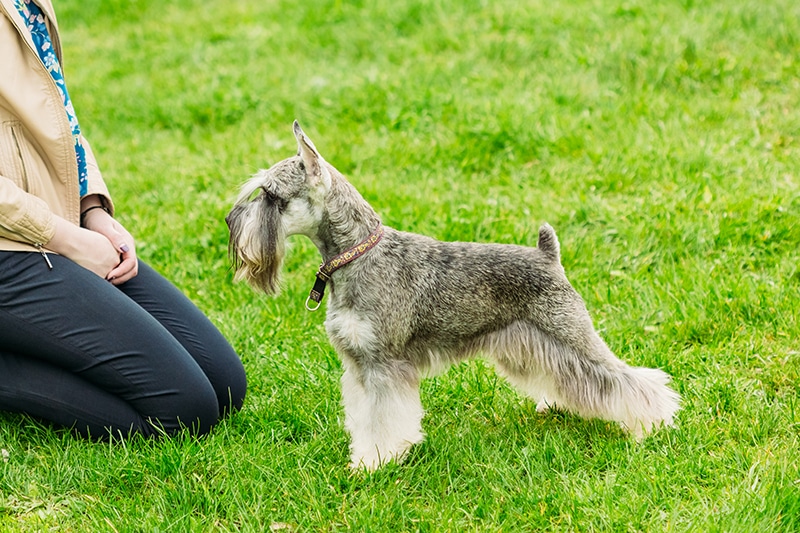
6. Ignore What You Don’t Want to See
Because positivity is so important, focus on rewarding your pet when they do the things you want to see and pay as little attention as possible to unwanted behaviors. When dogs want attention, they sometimes jump, whine, or bark, which often prompts a response from their favorite person.
Dogs seeking a bit of love will sometimes engage in annoying activities because they’ve learned it’s the most efficient way to get what they need—attention. Simply say “No” or “Down,” and wait for your dog to become calm. Then, give them treats and rewards. Eventually, they’ll associate staying calm and not jumping with good things, leading to a happy relationship between you and your pet.
7. Try Different Rewards
Providing rewards is essential to training Miniature Schnauzers. They often respond well to toys, praise, and treats. Because they tend to be incredibly focused on their humans, they usually love being petted as a reward. Mixing rewards keeps things interesting for your pet and limits excessive treat-giving, which can encourage harmful weight gain in some dogs.
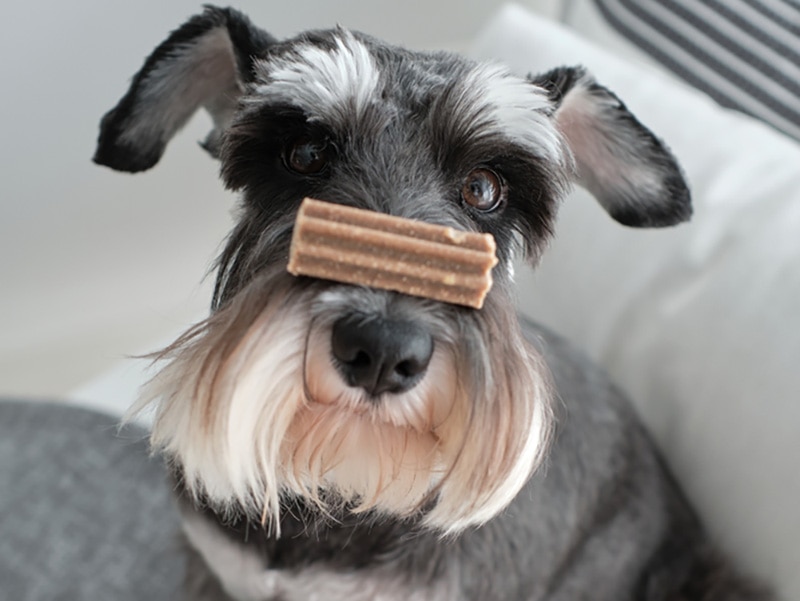
8. Use Your Dog’s Name Positively
Avoid using your dog’s name when telling them no when they’ve done something wrong. Frequently using your pet’s name when telling it to stop doing things can make it slow to respond when you call its name. Try only to use your dog’s name when it’s time to eat, go for a walk, or play to ensure you’ll consistently be able to get your pet’s attention.
9. Provide Alternatives
It’s best to ensure your dog has plenty of toys and activities to keep them busy. Instead of trying to train your pet not to eat your shoes, consider giving them something tastier and more appropriate to snack on, like a bone or chew toy. Dogs that bark when they want to go for a walk can often be trained to ring a bell or approach you with their leash instead. Also, pets that jump on visitors can often be convinced to head to a cozy dog bed instead.
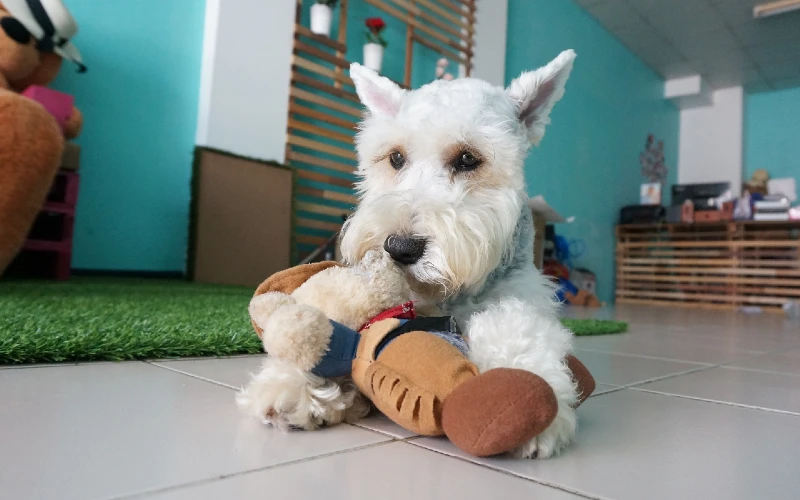
Final Thoughts
Miniature Schnauzers are devoted, intelligent, and easy to train. They sometimes have difficulty overcoming their Terrier-chasing instincts, so it can take time before some Miniature Schnauzers are ready for off-leash jaunts. They’re often quite sensitive, and positive reinforcement is the ideal technique for training. Punishment, harsh tones, and sharp reprimands can lead to a reluctance to engage in further training. These loving dogs often respond well to various rewards, including treats, playtime, and affection.
Featured Image Credit: Romanova Anna, Shutterstock





